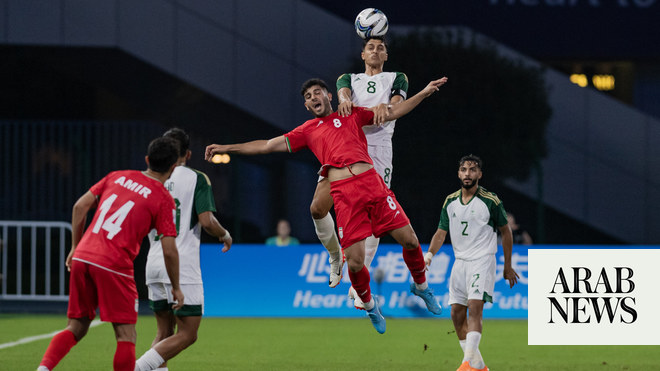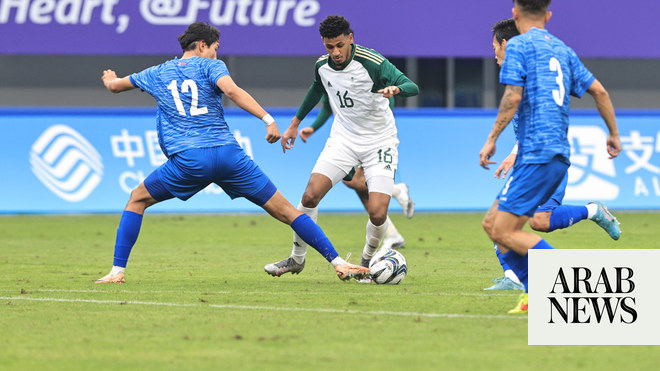
Much of football was unhappy when the 2022 World Cup was moved to winter but those extra five months may yet be appreciated. This is especially true in Asia where qualification for Qatar has been delayed as football in the giant continent grinds to a halt in what is usually one of the busiest months of the year. One person at the Korean Football Association said: “I go to the office but don’t do anything. There are no games, no tournaments and not many meetings. We can only wait.”
The coronavirus started to impact Asian football in January. Thailand’s Buriram United were uncomfortable about the prospect of facing Hulk, Oscar and Marko Arnautovic in Shanghai but not, this time, because the Asian Champions League qualifying play-off was a one legged game away from home. What really concerned them was this new virus that was spreading around China. Buriram wondered whether the game should be postponed but were told that it would be played behind closed doors, and Asian football has been playing catch up ever since.
On 22 January, the Asian Football Confederation (AFC) moved Group B of women’s qualifiers for the Olympics from Wuhan, where the virus emerged, to the eastern city of Nanjing. It seems so innocent now. It was soon shifted to Australia but the visiting Chinese team had to stay quarantined in a Brisbane hotel and exercise in corridors. Despite the limitations, the team performed well, earning an elimination play-off against South Korea. That game was postponed to April but the Chinese didn’t want to go to Korea and the the host city of Yongin wanted nothing to do with it. Now it will be, hopefully, June.
Every new measure taken has been followed by a stricter one. In terms of international competitions, pretty much everything that can be postponed has been. The same is true of a growing number of domestic leagues. Unlike Europe, many seasons are just starting so there is some leeway but, assuming the situation calms down at some point in the next month or two, there are going to be some serious fixture logjams to clear. This is the best-case scenario.
The Chinese Super League was the first to delay the big kick off, scheduled for 22 February. At that time, many teams were not even in the country. Shijiazhuang Everbright, for example, had left the Middle Kingdom for an Abu Dhabi training camp in January. It was supposed to last for two weeks but those two weeks have become seven as returning home early could see the players and staff confined to their clubhouse.
Trying to keep players motivated and focused is a challenge for the coach, Afshin Ghotbi. What made it worse was after six weeks, the UAE Tour came to the same hotel and brought with it suspected cases. Fortunately, Shijiazhuang had to stay inside for just two days before switching hotels. “It was a difficult situation as we could not leave the hotel,” Ghotbi told the Guardian. “There was a gym of course but there were also 300 cyclists with the same idea. We had lots of discussions and told authorities that our players were being well-looked after and were being closely monitored by our own staff. I am proud how the players handled it. Now we are waiting to hear when the season will start.” It is unlikely to do so before May.
Trying to keep players – many concerned about family back home – motivated and focused is a challenge for coach Afshin Ghotbi. What made it worse was after six weeks in the city, cyclists in the UAE Tour that were staying in the same hotel tested positive for the virus. Fortunately, Shijiazhuang had to stay inside for just two days before switching hotels. May is the earliest when football in China will restart.
South Korea had told fans attending early Champions League games (the continental competition started but has been pushed back on numerous occasions) to wear masks, have temperatures taken and submit a medical questionnaire before entering stadiums, but suddenly there was a sudden surge in cases and the K-League was postponed.
The J League did play a first round of games, with Vissel Kobe telling fans not to sing, chant or move too much – though clapping was OK – before taking a three-week break. The planned mid-March restart is not going to happen. The 2020 Olympics, set to start in Tokyo in late July, are weighing heavily on minds and not only in the Japanese capital. For South Korea’s men the prospect of not being able to compete when a medal means exemption from military service is starting to become a genuine possibility.
The Asian World Cup qualifiers due to take place in March and June have been postponed and moved to, probably, September and October, although this does come with a silver lining, at least in China. The national team has been struggling in the second stage of qualification. Only top spot gives an automatic place in the next round but four of the eight best runners-up also go through. That now is China’s target.
Later in the year, Brazilian playmaker Ricardo Goulart, one of the best imports in recent years, will be eligible to turn out for Team Dragon. After one point from two games against the Philippines and Syria ended with the resignation of Marcello Lippi in November, the delay also means there is more time for new boss Li Tie, formerly of Everton and Sheffield United, and a bright coaching prospect, to spend with his players.
At the moment, however, there is nothing to do but wait.
The Guardian Sport












